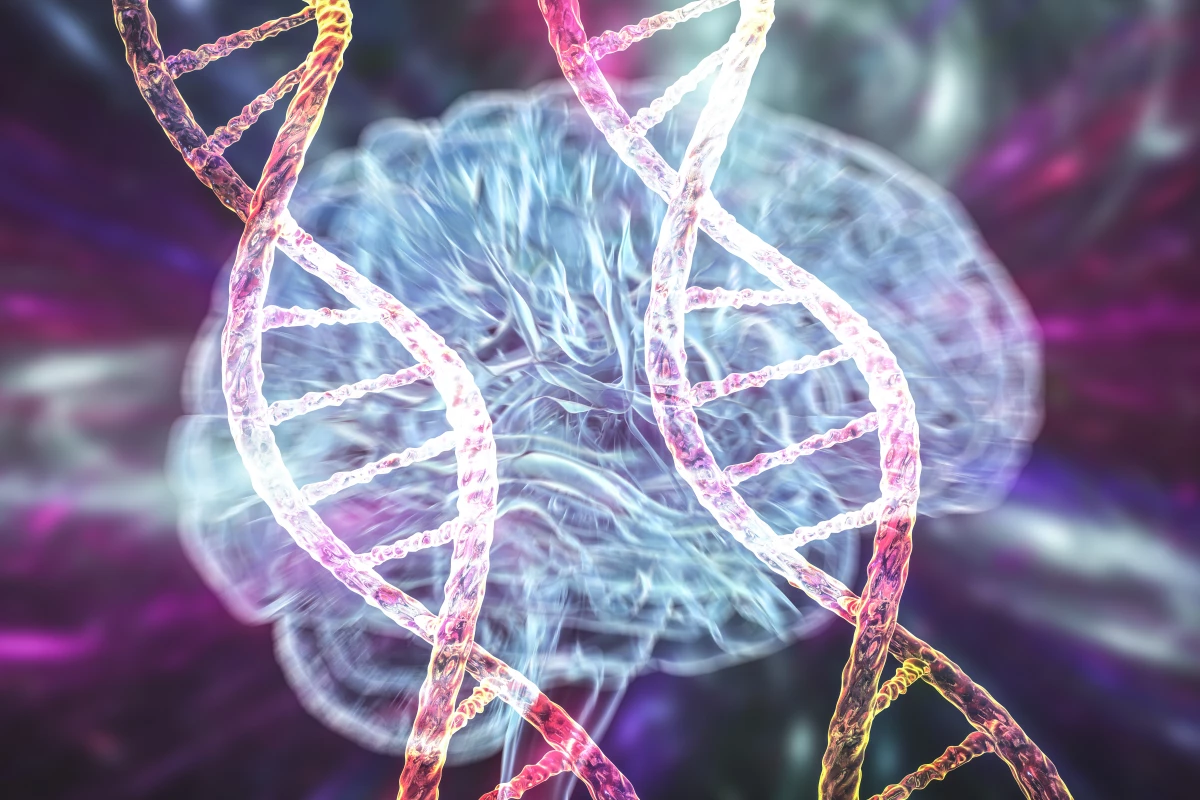We've never been closer to accurately assessing whether an individual is more susceptible to developing major depressive disorder due to their biology, with 293 newly identified gene variants found to play a role in ramping up the risk factor. That's 42% more than was previously known.
A massive trans-ancestry genome-wide association study (GWAS) looked at the genetic makeup of 688,808 individuals with depression and 4,364,225 people in the control group and identified, in total, 697 variants across 635 gene loci linked to the disorder. 293 of those were new findings.
It's the result of nearly eight years of work by an international team of scientists led by the University of Edinburgh and King’s College in London, along with researchers from QIMR Berghofer, The University of Queensland (UQ) and the Brain and Mind Centre, Sydney.
“Our research has identified numerous genetic factors that contribute to the condition, showing that it involves a complex mix of genes," said UQ scientist Enda Byrne. "These findings offer new opportunities to improve how we treat and support those with depression."
While it's understood that complex biological and environmental factors contribute to depression, this comprehensive genetic depression risk map will allow medical professionals to quickly identify patients who are more predisposed to developing the condition.
Last April, researchers Jacob Crouse and Ian Hickie from the University of Sydney explained why understanding the role of genetics in depression is crucial: "Imagine two people, one with a high genetic risk for depression, one with a low risk. They both lose their jobs. The genetically vulnerable person experiences the job loss as a threat to their self-worth and social status. There is a sense of shame and despair. They can’t bring themselves to look for another job for fear of losing it too. For the other, the job loss feels less about them and more about the company. These two people internalise the event differently and remember it differently."
Of course, that's a simplified way of explaining a multifaceted condition that's incredibly nuanced and personal. However, if a person is living with a full genetic bingo card of these identified variants, there's a much higher risk of them developing the disorder. Patients that are most biologically at risk can be better supported through treatment options.
The study looked at genetic data from people in 29 different countries, across 109 studies, with nearly one in four participants (24%) being from a non-European background. Thanks to this scope, some 100 novel variants were found that had not been identified in previous European-only studies.
This also highlights the need for more research into the disorder among African populations, which remain underrepresented in global studies.
Much like in many other diseases and conditions, having a single variant doesn't have increase one's risk of depression a great deal. But the more variants an individual has, the higher that risk is.
“While depression is a growing major health issue, we lack the insights needed to better treat and prevent it,” said QIMR Berghofer researcher Brittany Mitchell.
Having that clearer picture of the role genes play can also help researchers develop more effective drug treatments – which includes repurposing existing medications, such as those used to combat chronic pain and narcolepsy.
And, beyond medication, identifying individuals with a higher genetic risk of developing depression could be preemptively armed with specific techniques to better manage stressors – one of the many triggers of the condition.
Significant gene variants were found in the loci DRD2, FURIN, and CYP7B1, which play a part in neuroinflammation, neurosteroid synthesis, and synaptic function. Of the 697 variants identified in the study, 308 were involved in postsynaptic density and receptor clustering – the mechanisms by which brain cells, or neurons, send and receive information.
This study significantly furthers our understanding of the genetic role in synaptic and neuronal dysfunctions present in the brains of people with depression and paves the way for specific mechanism-focused treatments.
“Larger, more inclusive studies like this will help us develop better treatments and interventions, ultimately improving lives and reducing the global impact of the condition," added Mitchell. "It will also reinforce the evidence that mental health conditions are as biologically based as other conditions like heart disease.”
The first concrete evidence of genes playing a role in depression was remarkably only found in 2011, with the biomarker of chromosome 3p25-26. But in the past decade, more gene studies have have found that biology is an indisputable factor in one's risk of suffering from depression and the range in the disorder's severity.
Adding weight to the emerging body of evidence linking variants to depression comorbidities, DRD2 has previously been implicated in attention-deficit/hyperactivity disorder (ADHD), Tourette's syndrome (TS) and post-traumatic stress disorder (PTSD).
Variants of the DRD2 gene – which plays a key role in dopamine signaling in relation to attention, motivation, impulsivity control and reward processing – are attributed to the poor dopamine regulation seen in those with ADHD.
FURIN and CYP7B1, meanwhile, are thought to be more specific to depression and related neurodevelopmental conditions.
Overall, the study found that genetic factors contribute to around 37% heritability of depression across the study's population. So while 63% can be attributed to other factors – stress, trauma, lifestyle – it's still a significant number. Meanwhile, those with these risk variants have, statistically speaking, 50% chance of passing them on to offspring. Although this doesn't mean a child is guaranteed to develop depression because of this, because of the complex intertwined nature of biology and environment, it does increase their chances if the other risk factors are also present.
What's more, identifying these variants and understanding their role in depression – as well as ADHD and anxiety disorders – can help reduce stigma and misdiagnosis when it comes to mental and neurodevelopmental conditions, expediting more effective drug and behavioral treatment.
The study was published in the journal Cell.





